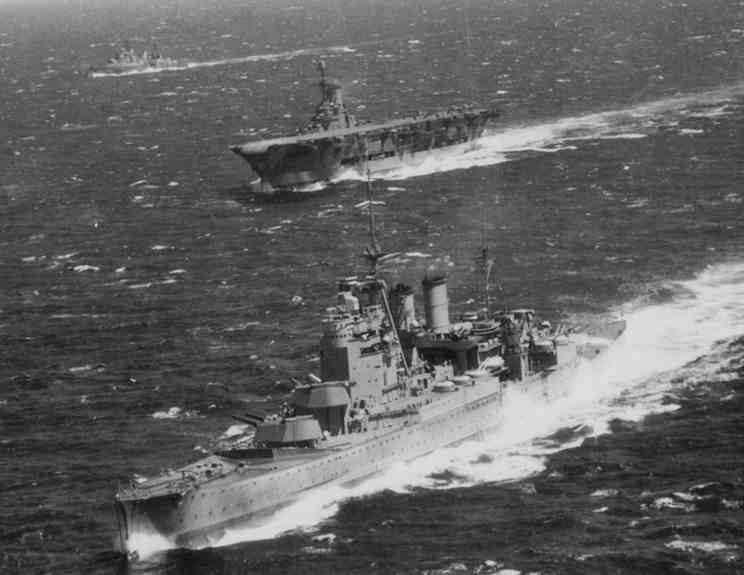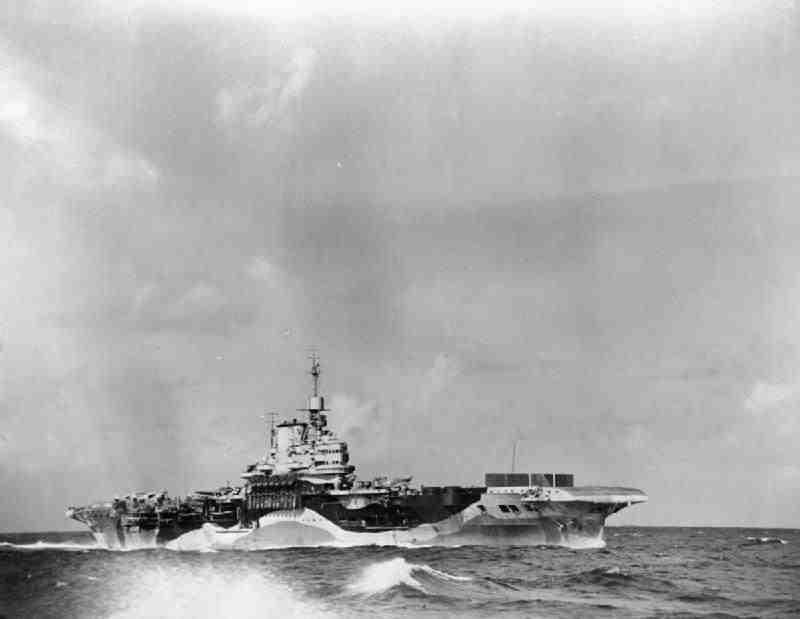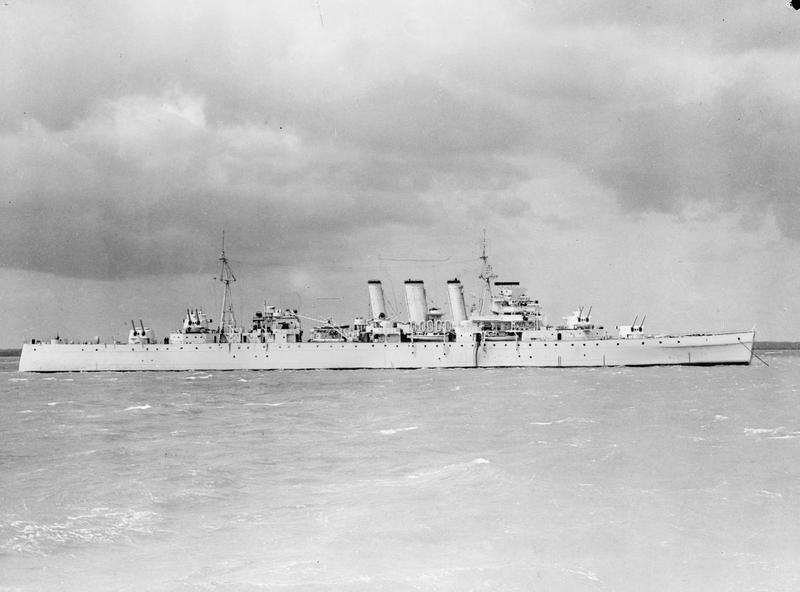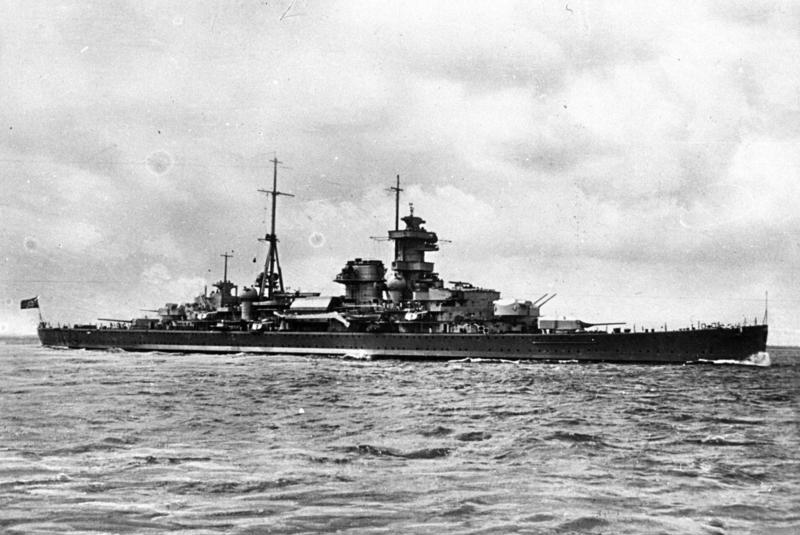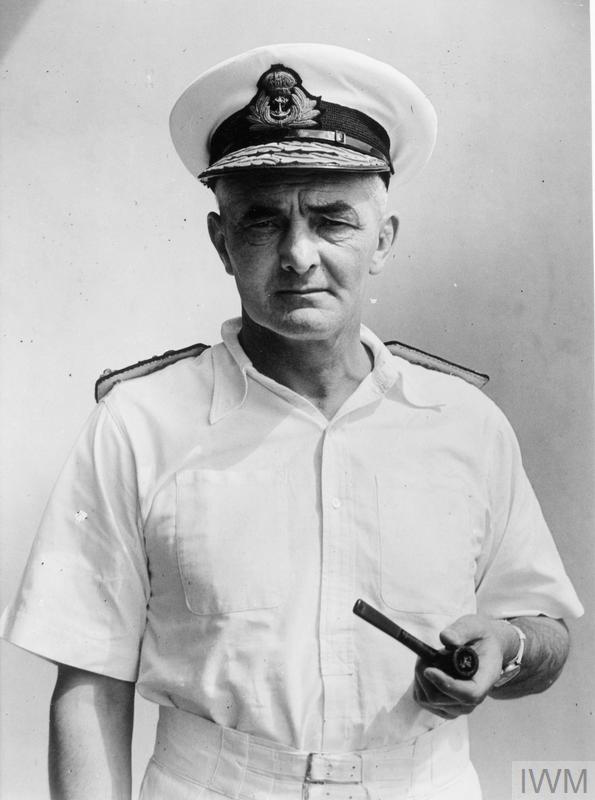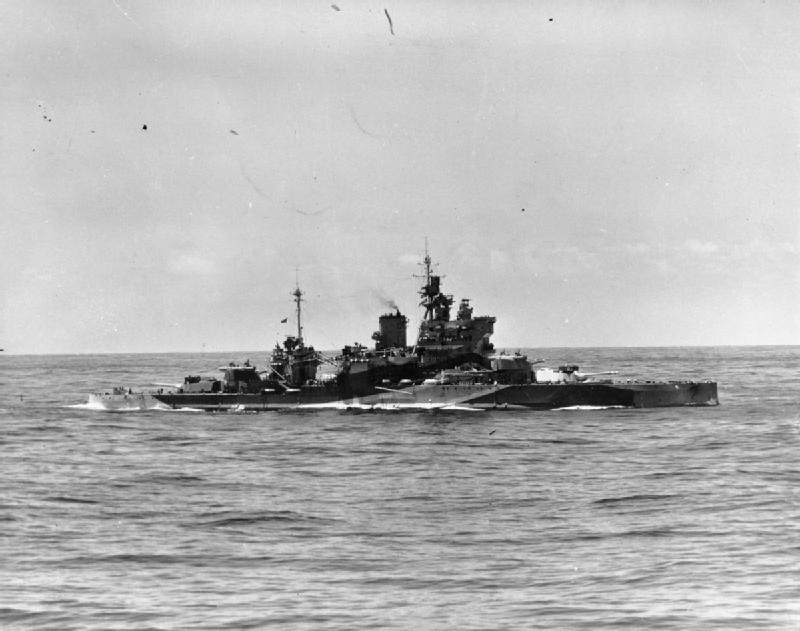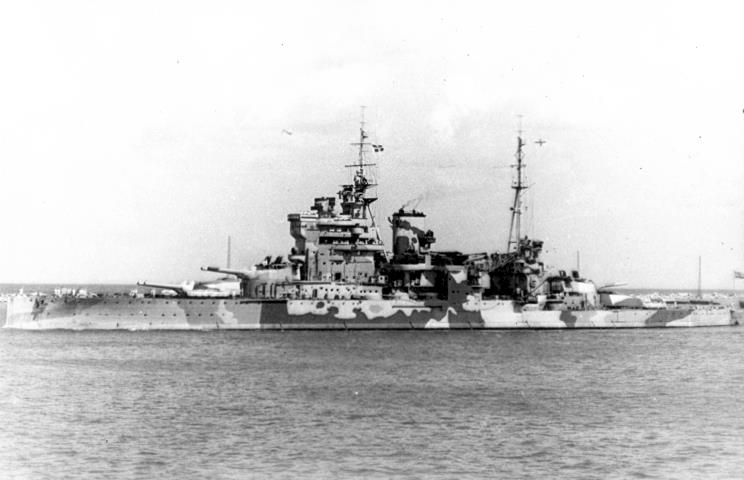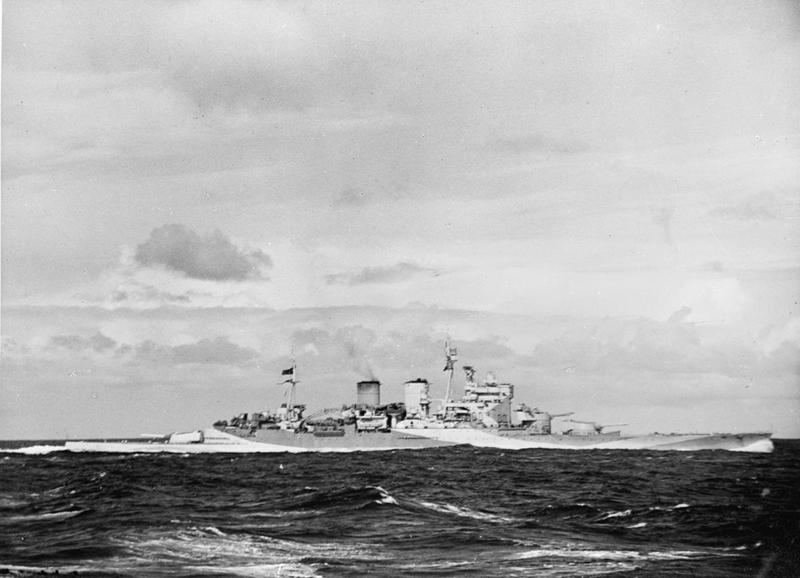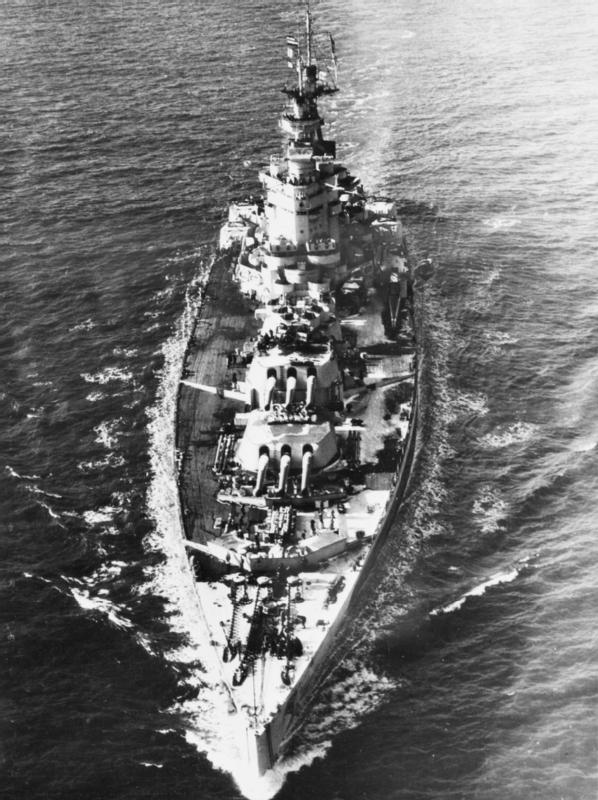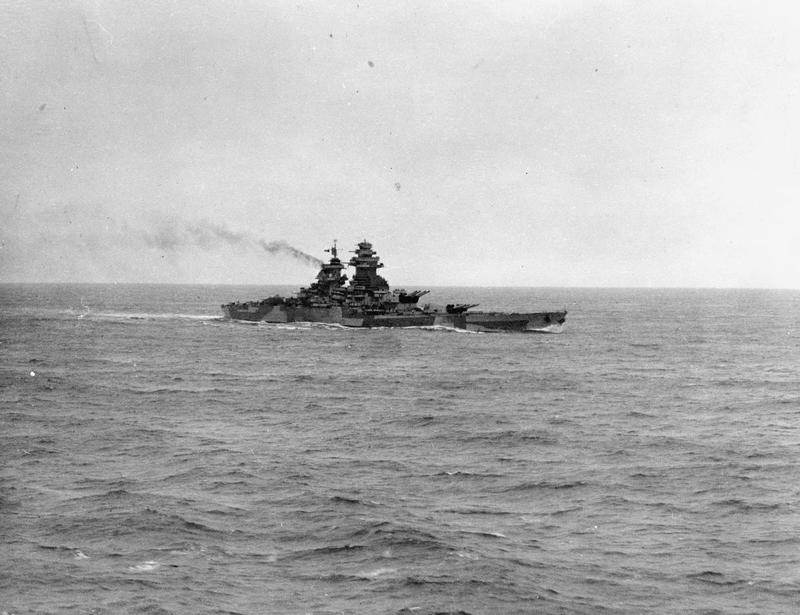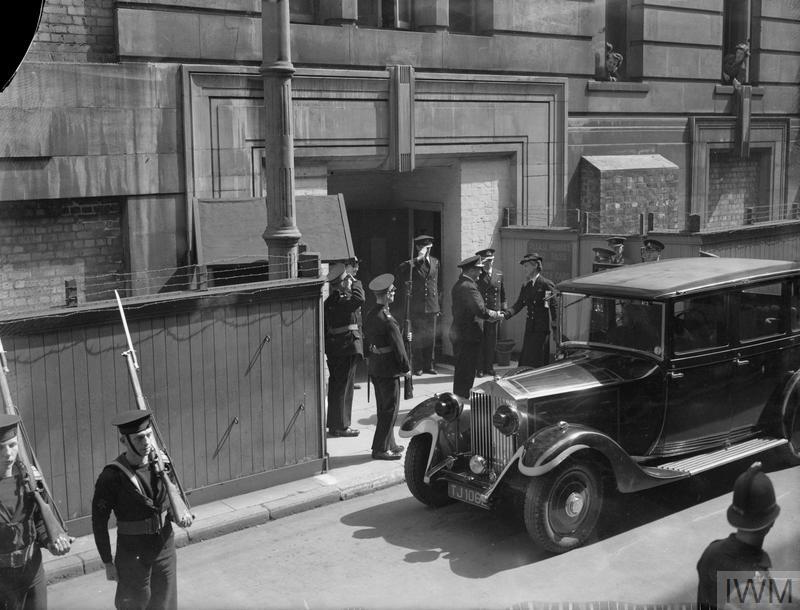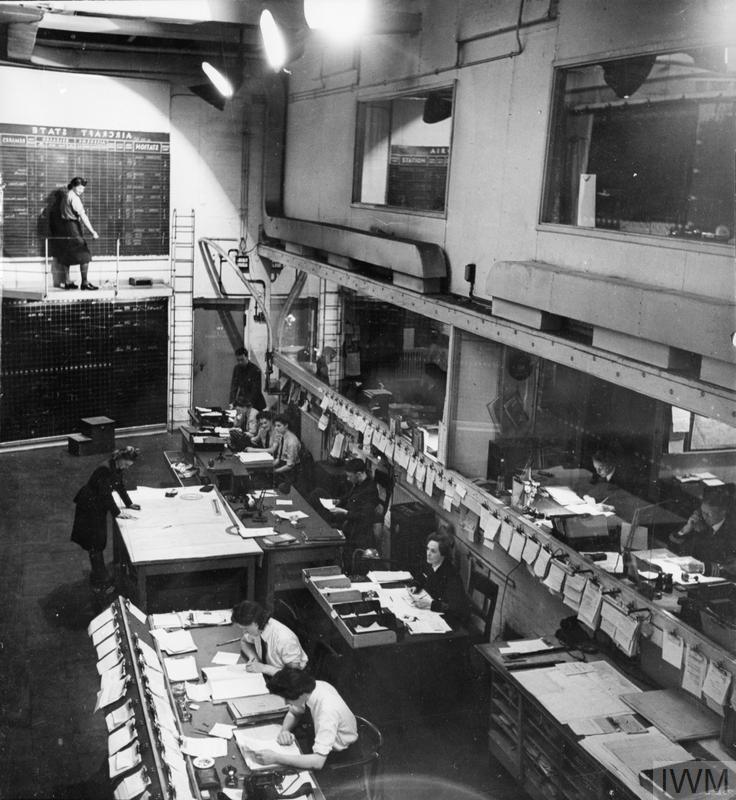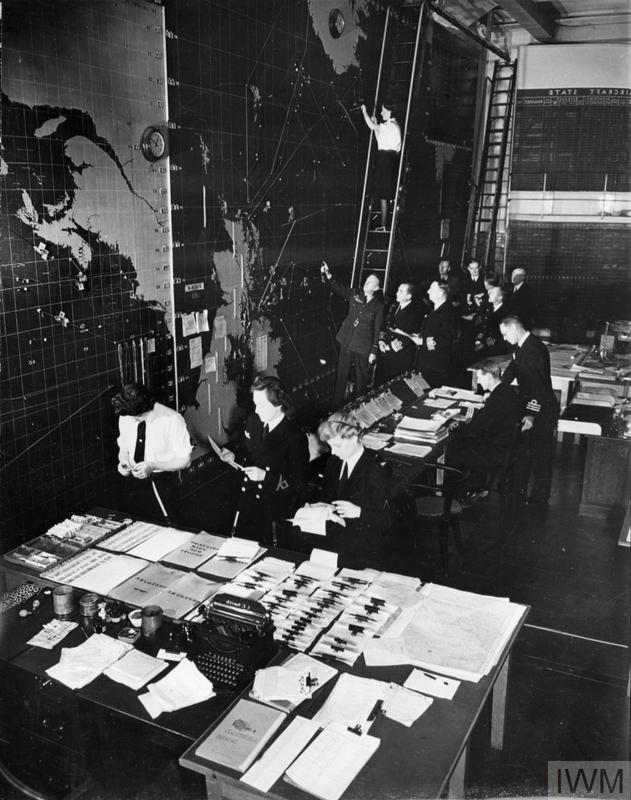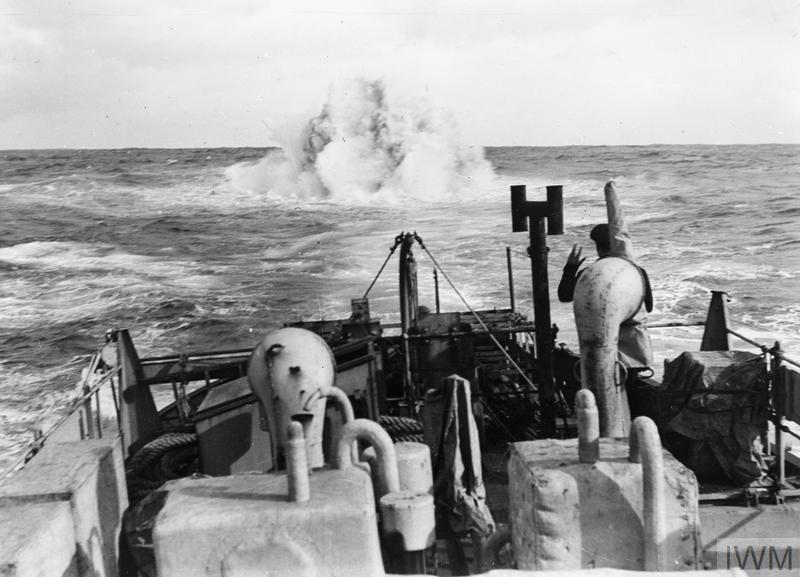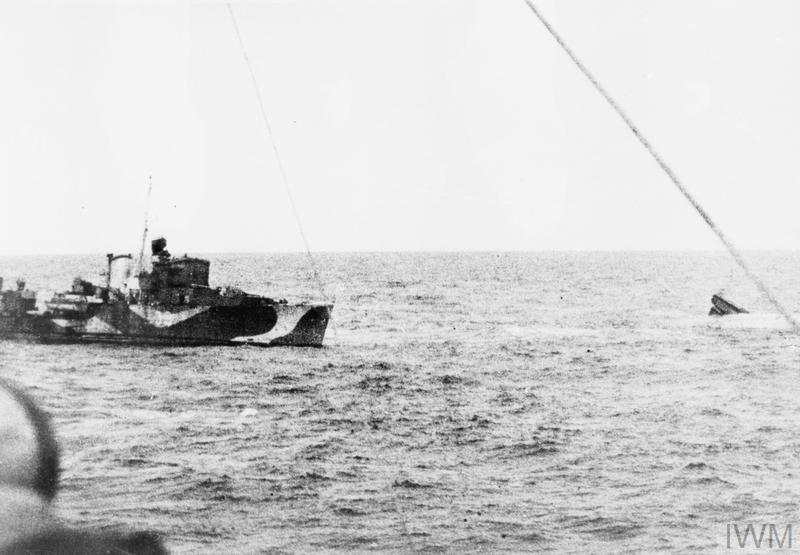
On this day 1940 the German heavy cruiser Hipper, commanded by Cpt Wilhelm Meisel, began an attack on the large, Allied troop convoy WS5A, 800 miles west of Cape Finisterre.
Opening fire at 0838 Hipper's first targets were the HMT Empire Trooper & the SS Arabistan hitting both.
Opening fire at 0838 Hipper's first targets were the HMT Empire Trooper & the SS Arabistan hitting both.
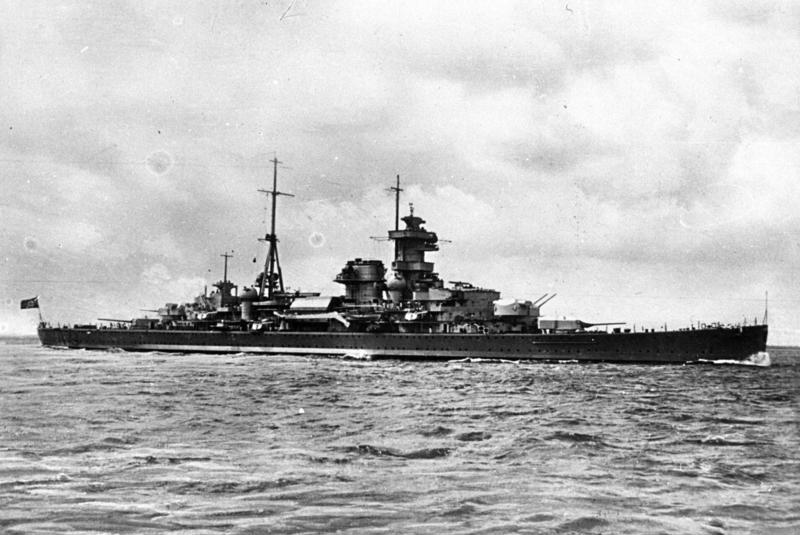
First to come to the aid of the two merchantmen was the small, Flower Class corvette HMS Clematis, whose Captain, Cdr York Cleeves, though obscenely outmatched by Meisel's Hipper, turned his vessel to fight, with its single, 4in gun. 
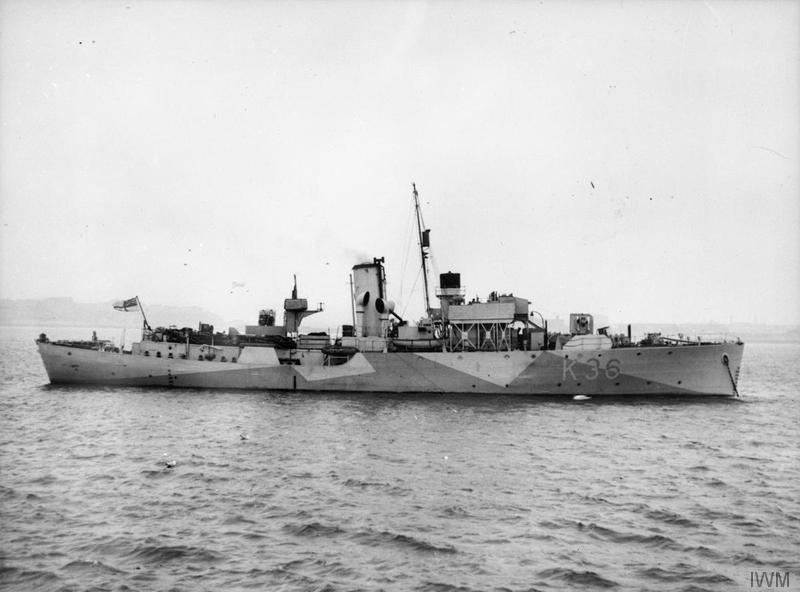
Unbeknown to Capt Meisel, however, due to its importance, WS5A was already extremely well escorted, & just two minutes later, the largest of the three cruisers with the convoy, HMS Berwick, which matched Hipper in speed & eight 8in guns appeared through the squalls & opened fire. 
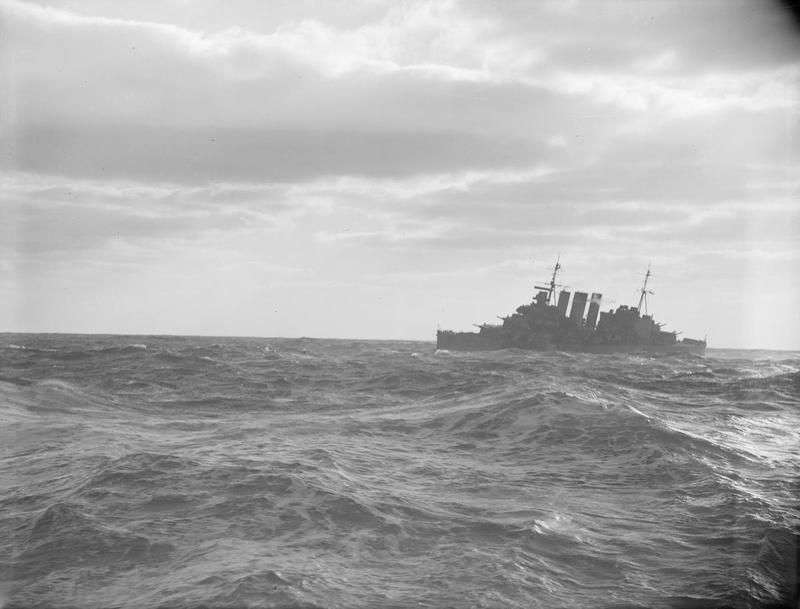
HMS Berwick was soon joined by the other two cruisers in WS5A's escort, the brand-new, Dido Class anti-aircraft cruiser HMS Bonaventure & the older D Class, light cruiser HMS Dunedin, which engaged with their 5.25in & 6in guns, while orders were given for the convoy to scatter. 

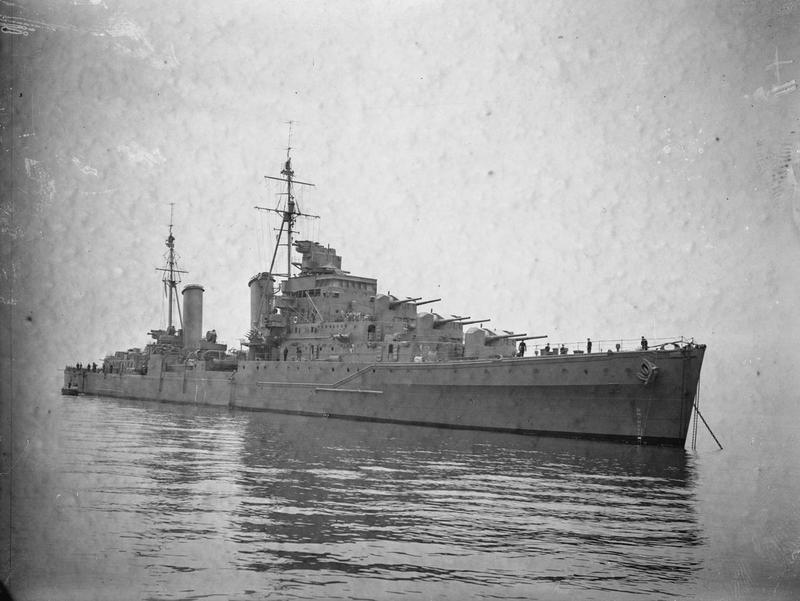
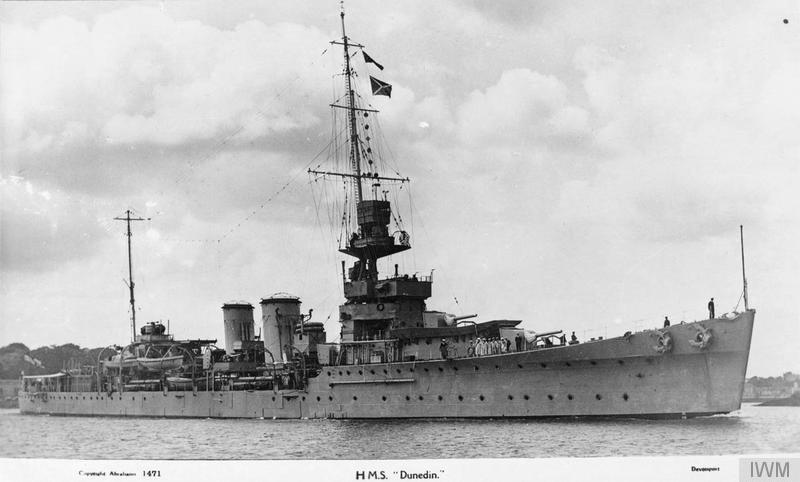
At this stage of the war, HMS Berwick & HMS Dunedin lacked radar, while HMS Bonaventure's Type 279 set was primarily for air warning, rather than surface gunnery, so the British frequently had only Hippers gun flashes to aim by, & Cpt Meisel used the heavy weather well. 
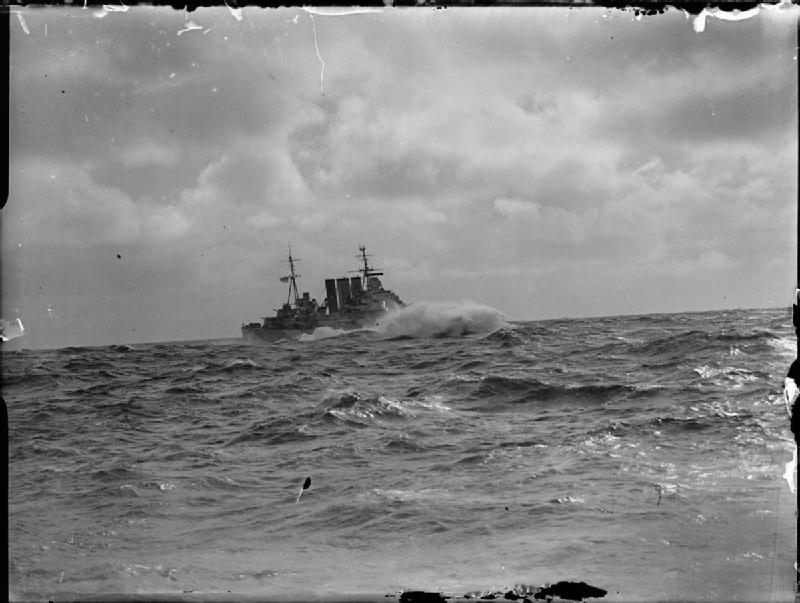
Concentrating her fire on her most dangerous opponent, at 0905, Hipper's radar advantage finally told & she scored a hit on HMS Berwick's X turret, knocking it out & killing four of the @RoyalMarines inside. 
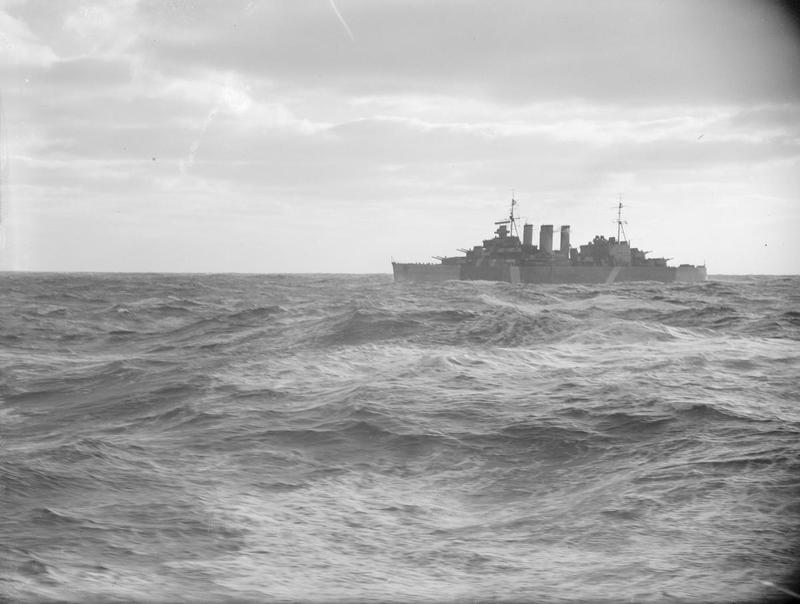
At 0908 another hit flooded B turret magazine, knocking it out too, while another destroyed the foremost of HMS Berwick's twin, 4in secondary armament mountings.
Though still undamaged however, Cpt Meisel had seen enough opposition to know he was in a dangerous place...
Though still undamaged however, Cpt Meisel had seen enough opposition to know he was in a dangerous place...
particularly given that in the prolonged, high-speed steaming in heavy weather, combined with the shaking from the action, Hipper's high-pressure steam turbines (frequently an issue for German vessels) were starting to play up & he disengaged at 0914, sinking the single merchant
ship SS Jumna at 1530, but otherwise heading for Brest, to become the first of the Kriegsmarine's heavy ships to be forward-based in France, following its surrender in June (the U-boats had, of course, started arriving in July).
It was almost certainly the correct decision...
It was almost certainly the correct decision...
The attack on WS5A had stirred up a hornets' nest of a response from the @RoyalNavy. Already at sea & heading Hipper's way was the convoy's distant cover, Force K, made up of the brand new aircraft carrier HMS Formidable & cruiser HMS Norfolk, under R/Adm Frederic Wake Walker. 


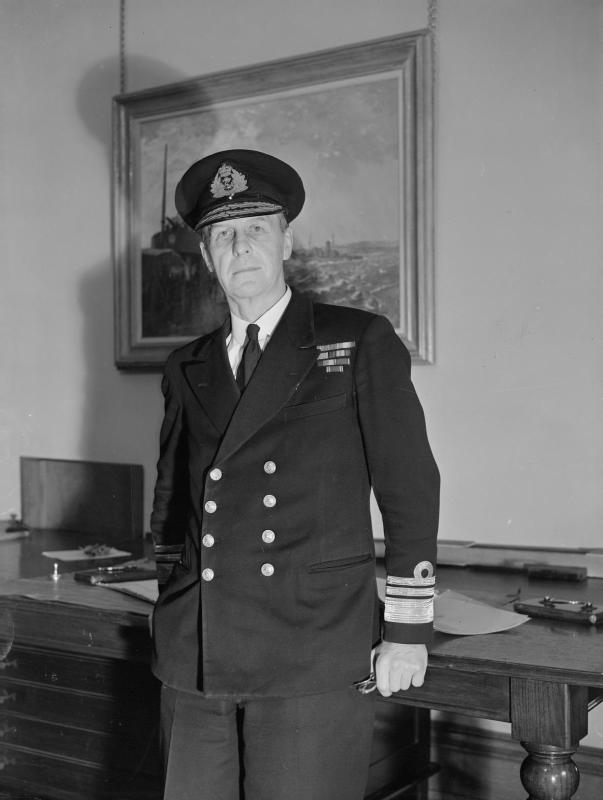
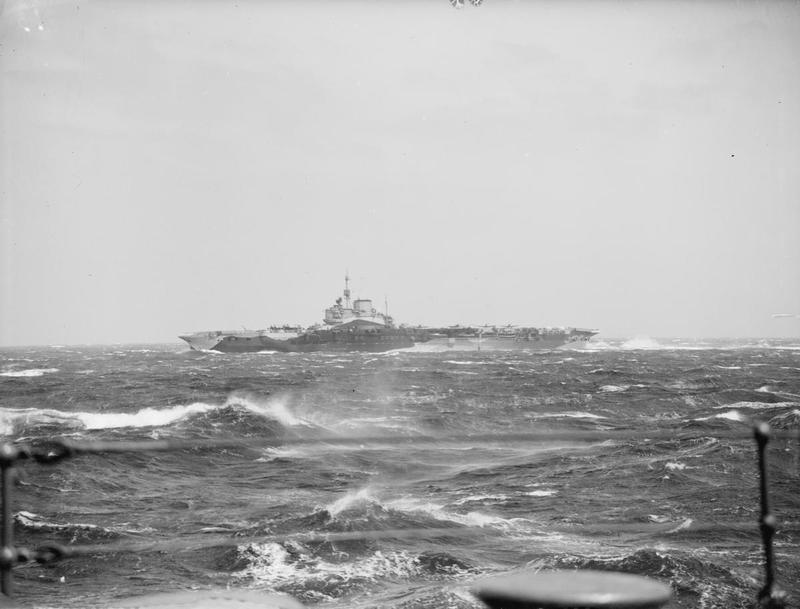
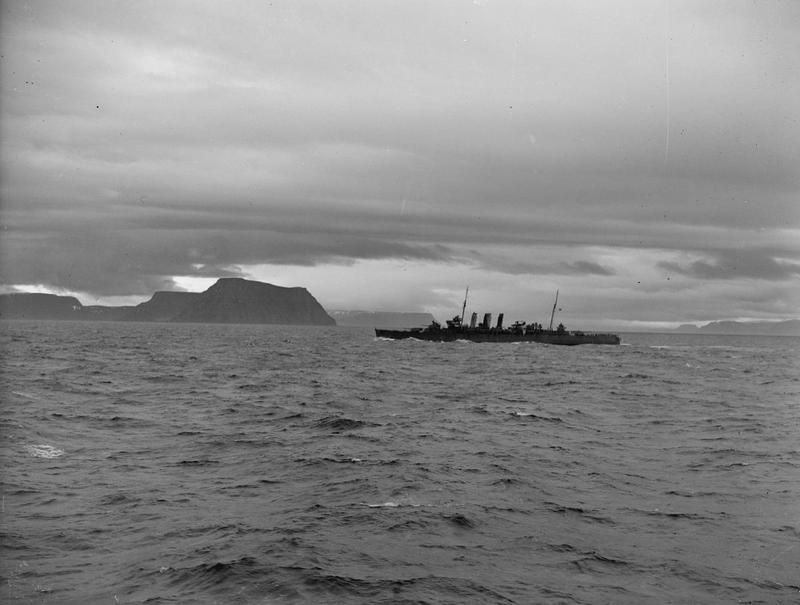
While V/Adm Sir James Somerville's Force H, who only returned to Gibraltar from their rendezvous with their new member HMS Malaya the previous morning, sailed at 1038 with HMS Renown, HMS Ark Royal & HMS Sheffield & headed for Hipper's last known position
https://twitter.com/navalhistorian/status/1341537647353802757?s=20
On top of this, with WS5A itself were the aircraft carriers HMS Furious & HMS Argus, which, though carrying extremely reduced air groups as they were transporting @RoyalAirForce fighters to Freetown & Takoradi, still had a number of aircraft & were ordered to help in the hunt. 

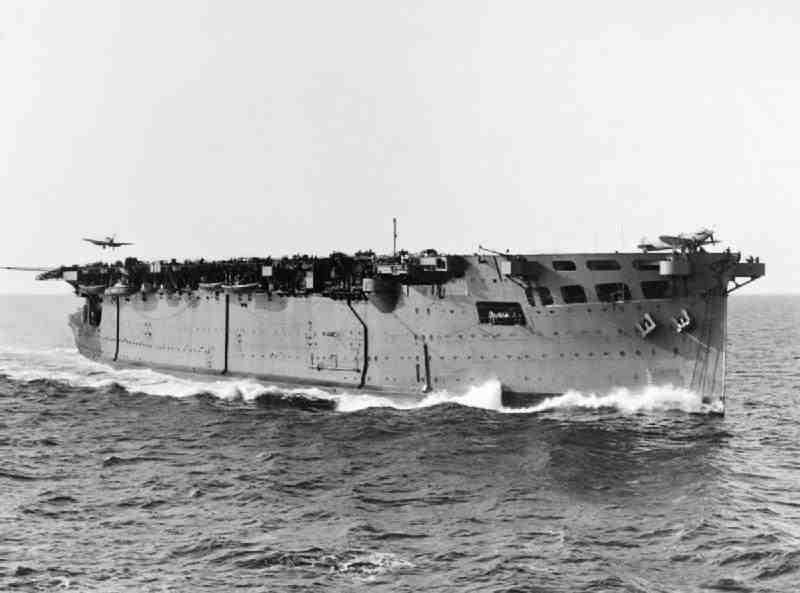
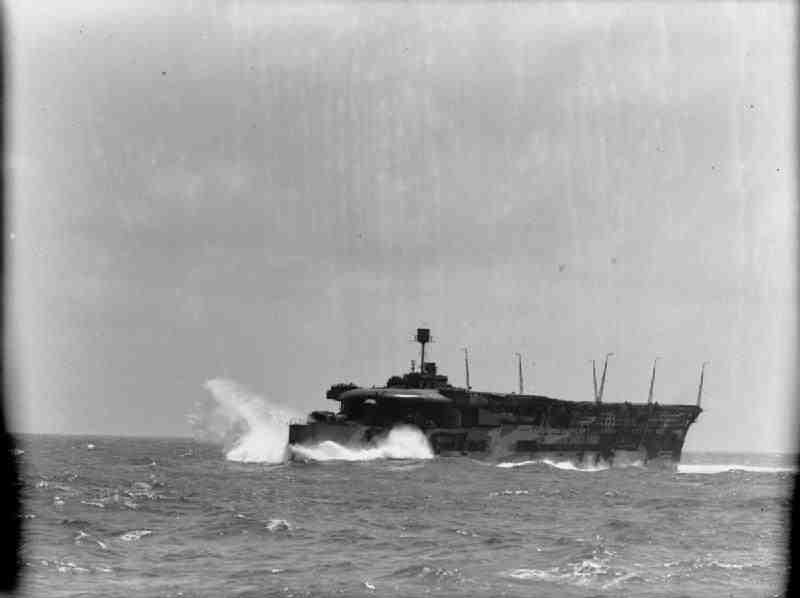
To the north, the newly installed CinC Home Fleet Adm Sir John Tovey was also stirring, dispatching the battlecruiser HMS Repulse & cruiser HMS Nigeria from Scapa Flow at 1500 to cover the Atlantic convoys HX 97 and SC16, in case Hipper should head north. 


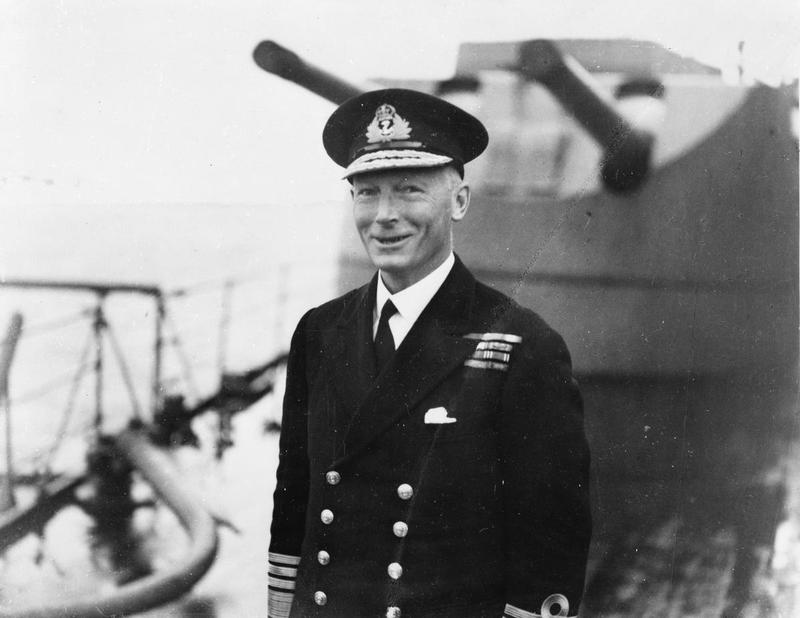
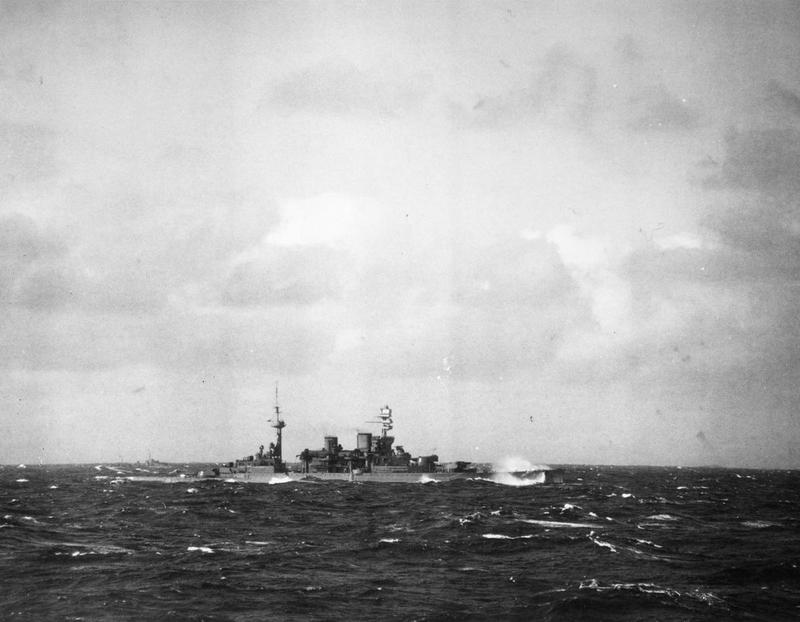
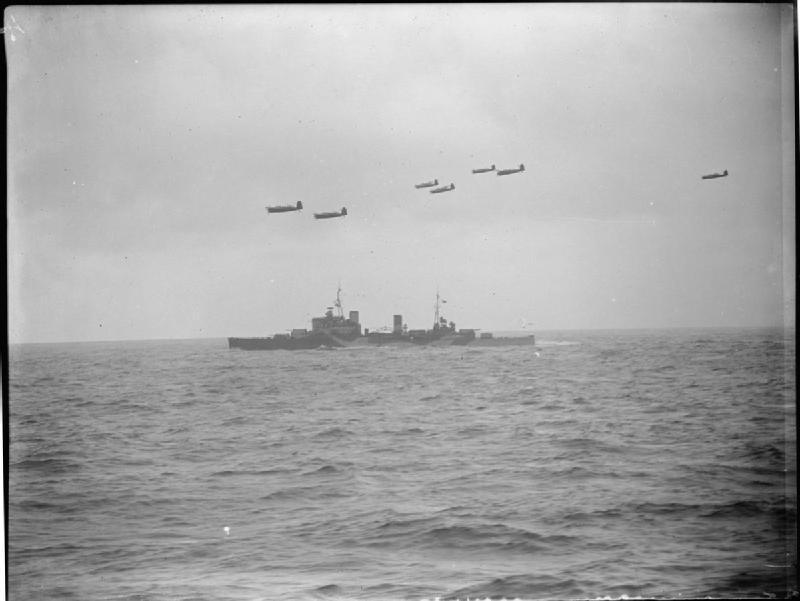
Adm Tovey also issued a warning to V/Adm Sir William Whitworth, already at sea patrolling the Iceland-Faroes Gap since 1730 on the 24th, aboard his flagship HMS Hood, with cruiser HMS Edinburgh, to be alert for Hipper trying to slip back into the North Sea. 


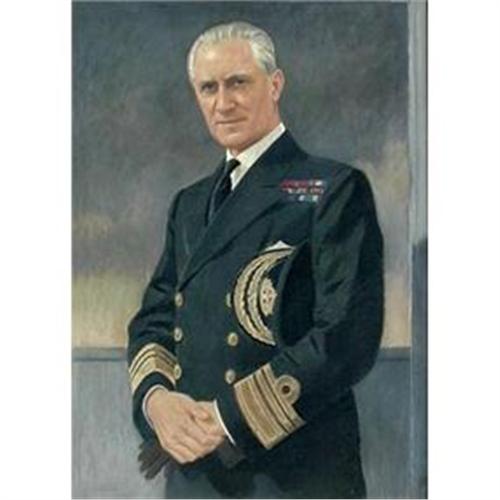
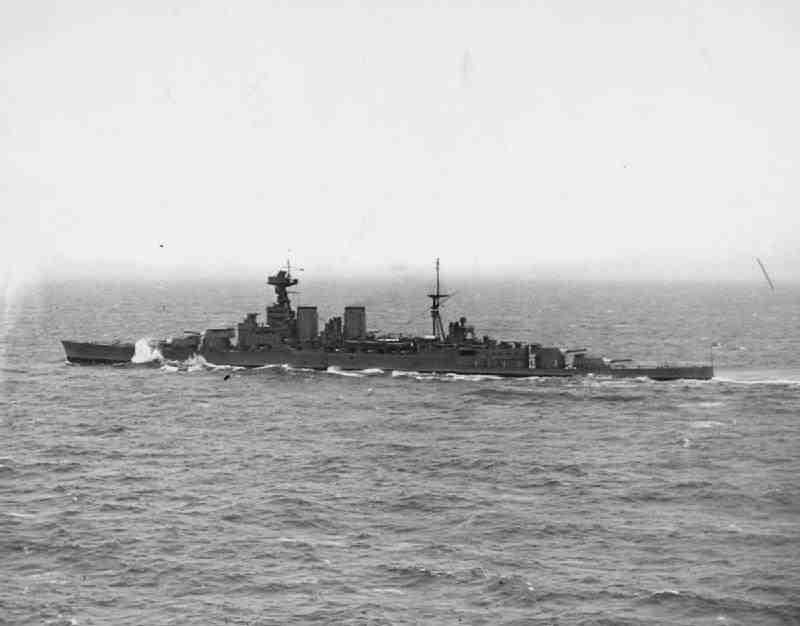
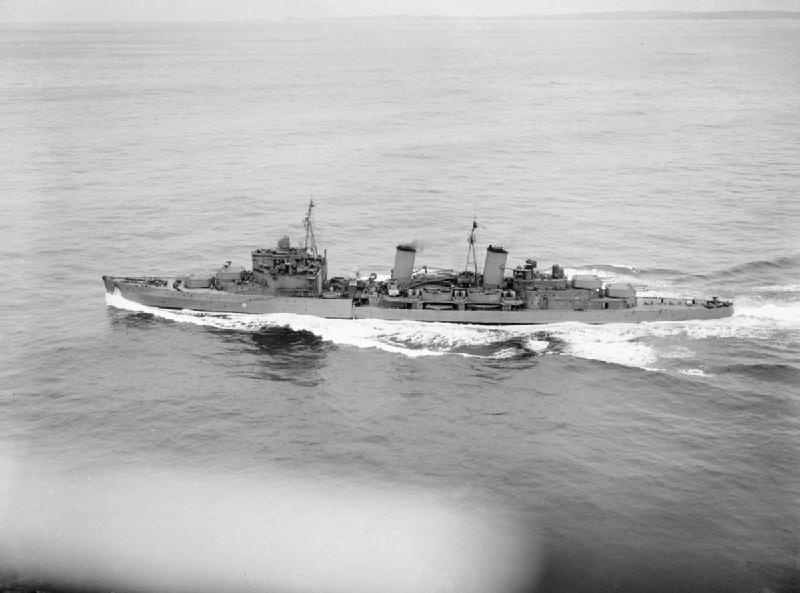
A couple of false alarms on the 27th would briefly cause Adm Tovey to sail from Scapa Flow himself on the 28th, aboard his flagship HMS Nelson, for what would be his first sortie "in anger" as CinC Home Fleet, though it would be, of course, to no avail. 

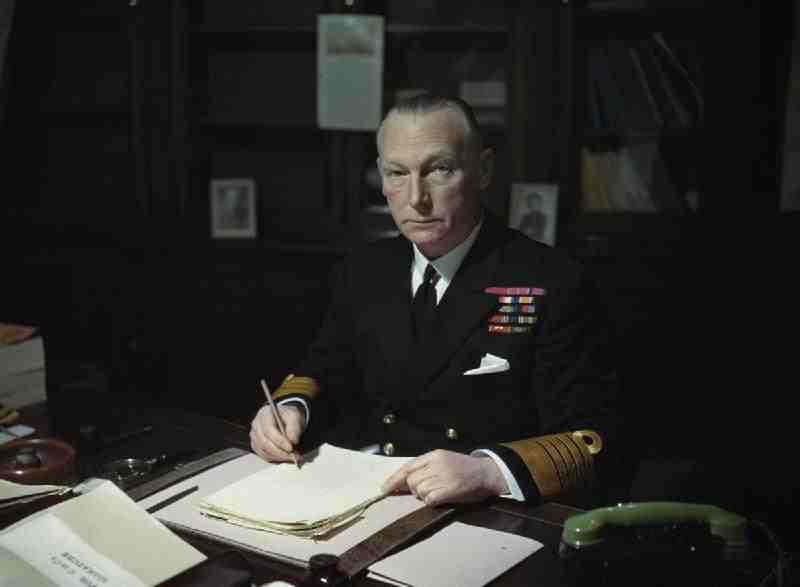
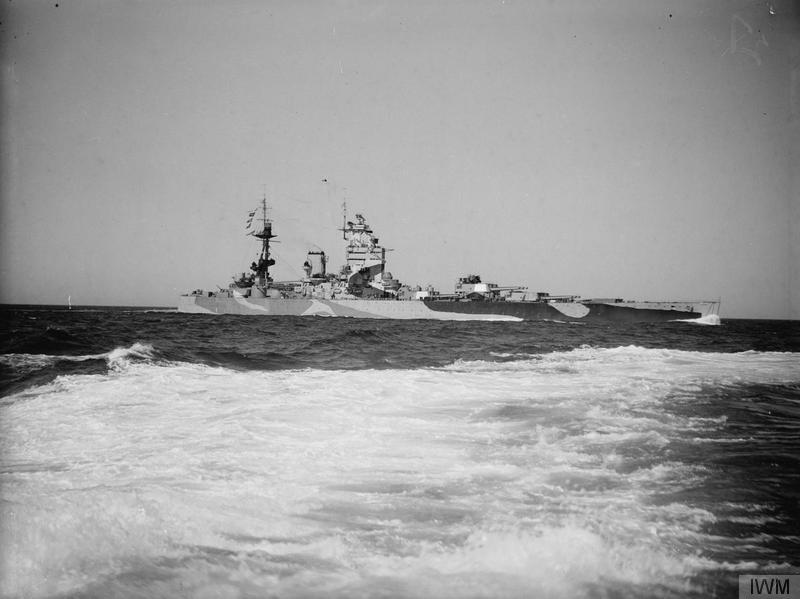
Back at WS5A however, luck was largely against V/Adm Somerville & R/Adm Wake-Walker, for despite the almost unprecedented (at this stage of the war) collection of four @RoyalNavy aircraft carriers, the weather was too bad for air searching, & Cpt Meisel was making good use of it.
The weather finally began easing on Boxing Day, allowing some flying from HMS Ark Royal, though HMS Formidable & HMS Furious were still unable to clear it. By this point, however, much of the effort began turning to herding the convoy's merchant ships back together & ensuring the 
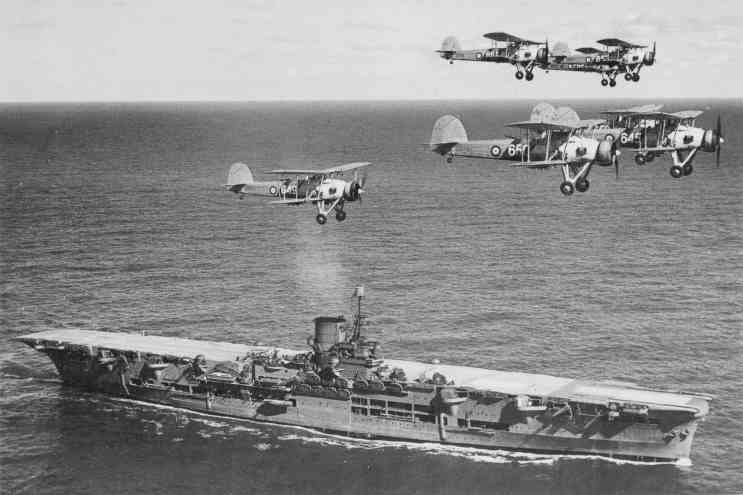
safety of the damaged Empire Trooper, which was found & taken under escort by HMS Bonaventure & the destroyers HMS Duncan & HMS Hero on the 28th, with Force H returning to Gibraltar on the 30th. 


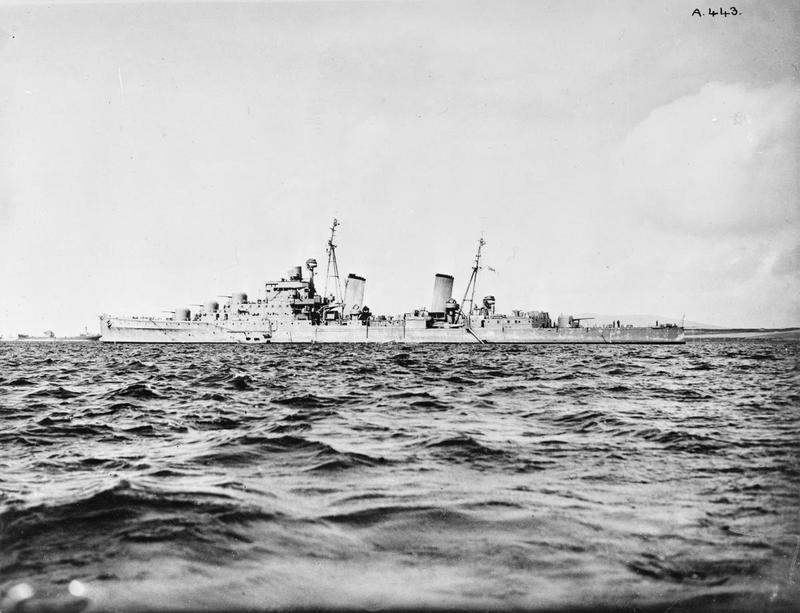
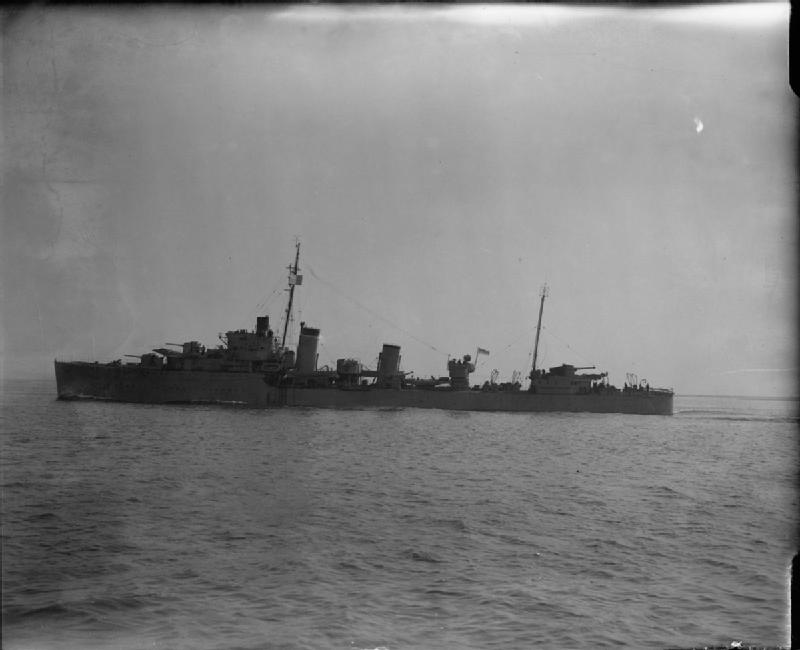
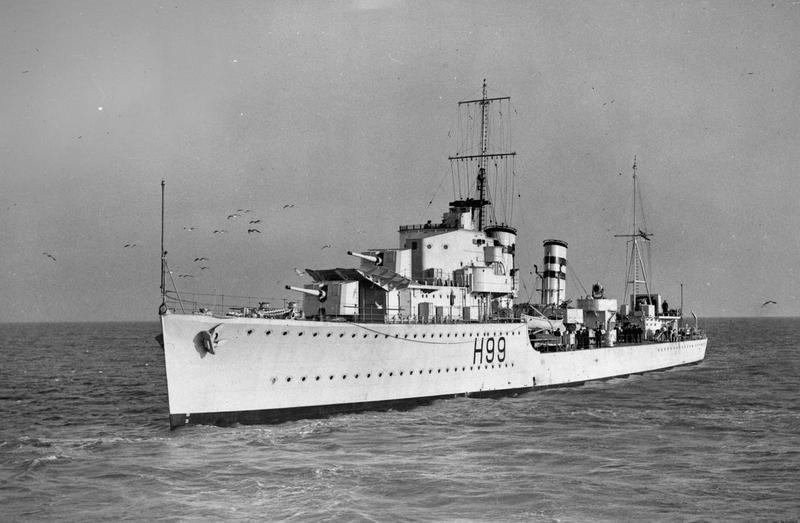
In some respects, Cpt Meisel had run a spectacularly sucessful operation, having provoked (albeit somewhat unwittingly) then evaded a spectacularly superior force, causing a huge amount of disruption to his opponents, some of whose over used ships took damage in the storms...
(most notably, alongside the damage to Berwick caused by Hipper's guns, a massive, 30ft portion of HMS Renown's starboard anti-torpedo bulge had quite literally peeled back on the 28th). 

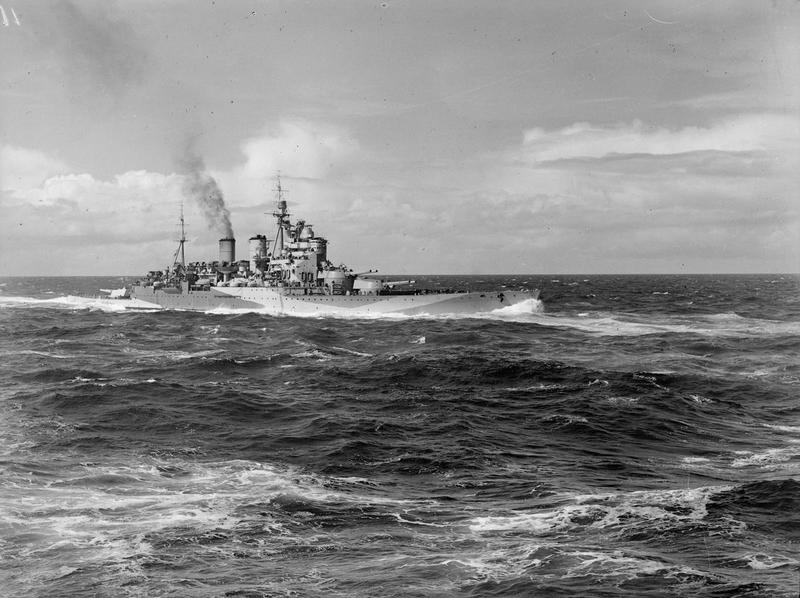
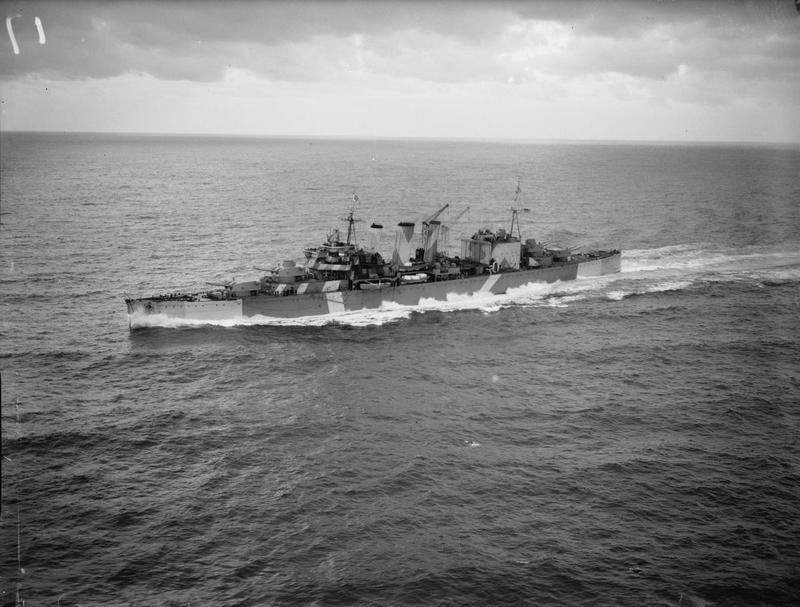
On the other hand, one of the most important troop convoys of the war to-date had been under Hipper's guns & the @RoyalNavy had successfully driven her off in a little over 35 min, despite her superiority in radar, with little damage & only the loss of the unfortunate SS Jumna.
• • •
Missing some Tweet in this thread? You can try to
force a refresh
